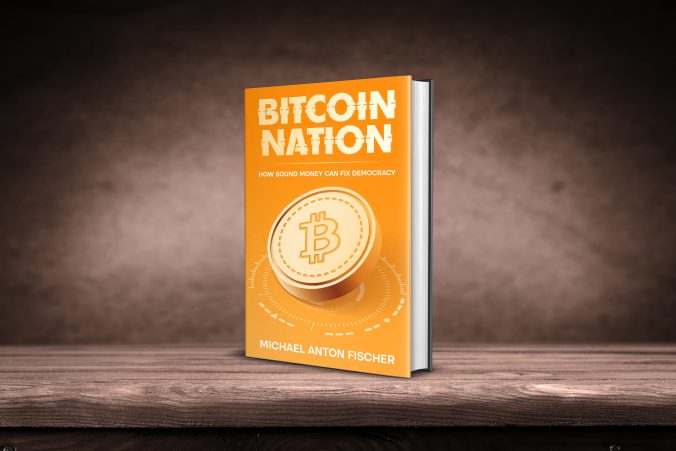My new book “Bitcoin Nation” was published on the 15th anniversary of the Bitcoin Whitepaper, October 31, 2023. You can read it below, one chapter per week. Or buy it here:
Without states, we would live in a dog-eat-dog world, where the strongest takes what he wants from the weak, where murder, rape, and chaos would reign.
Along these lines, most people argue why a state in its current form is necessary.
Let’s have a very brief look at why and how states evolved.
Our understanding of the history of the early days of pre-civilization humans is very limited. As far as we know, they lived in small family tribes, hunting and gathering for survival. When times were good, they’d live in abundance. When times were tough and food was scarce, some tribes would murder other tribes for food and
other contested resources. The weaker or more peaceful tribes would either be wiped out or move to less contested territory.
Over time, some weaker tribes figured out that they could band together and fight off the smaller strong tribes. This triggered a feedback loop, with peaceful and aggressive tribes banding together in ever larger groups to conquer and fend off the other tribes. The larger groups were less mobile, thus requiring the development of new tools, like agriculture, to continuously sustain large groups of Homo Sapiens in one static location.
It can thus be said that the state developed not to get rid of the dog-eat-dog world, but rather just to breed ever bigger dogs. If you look at the history of military conflicts, states have never been peaceful for extended periods. As states got bigger, the wars got bigger.
You might object to this analysis, by pointing out the fact that at least the citizens inside the states experience less violence than without a
state because the government peacefully resolves conflicts among citizens and fights crime.
This is not accurate from my perspective. As long as the state is successful in gaining resources for its elites from the outside, it is peaceful to its citizens. When it is not successful at procuring resources from abroad, it turns on its citizens. The conflict “Right vs. Left” is not really a political conflict, these are simply two different positions of a continuously swinging pendulum.
Over time, most states first turn to robbing the outside to grow and when this is not possible anymore, they then turn against their citizens to enrich the elites. This process can be observed in the USA today.
This process is reversed, if a state is newly created out of the rubble of a state that militarily failed. It thus cannot hope to gain resources from the outside, and will first turn inwards and exploit the mass of citizens, to enrich a small elite. This happened in post-WWI Russia and post-WWII China. Once such a state gets powerful enough, it will again turn on the outside to procure resources.
In the end, as we saw when discussing the impact of expanding the money supply, the violence, and free market restrictions imposed by both types of states do not really make anybody richer. They make a small elite comparably richer, but overall, they hinder economic growth and cause inefficiency.
This can be clearly seen, when you look at historic examples of states that tried a different, more liberal, more market-oriented approach. Be it historic Venice or the Hanseatic Cities. These small city states, focussed on free trade andpersonal liberties, having their law codes mostly created on a voluntary basis by merchants. This allowed them to amass untold riches and, despite their small size, afford enough military power to fend off bigger states for centuries.
Unfortunately, a small territorial size, in the end, is fatal. As soon as these states made a tiny mistake or competitors had grown enough in sheer relative population size, the small free cities would be forcibly integrated into larger empires andplundered for their riches or entirely wiped out.
Since free societies require a large part of voluntarism and consent, they necessarily must besmallif organizedterritorially.Findingenough like-minded individuals in one geographic area is just too hard. Thus, when a small free state grows, even if it is organized democratically, the more it grows, the less it can stay democratic. It may still claim to be, but in reality, democracy will at some point turn into a dictatorship of the masses, which will then quickly be usurped by elites. Within a couple of hundred years at most, every democracy in history has turned into some form of authoritarian state. A trend unfortunately currently being witnessed in most Western countries.
There is one counter example, however. The Jewish Diaspora may not have left their homeland voluntarily, but it is a great example of how a small nation could organize itself in a non-territorial way, grow prosperous and survive millennia of persecution. I greatly admire the achievements of the Jewish nation.
Long before modern telecommunication technologies, the Diaspora managed to organize itself, have a law and education system largely independent of territorial host states and create a trade network that made some of their membersspectacularly wealthy.
Of course, this wealth has triggered envy, so just like the small free city states, Jews were continuously attacked, and many conspiracy theories created to discredit them. Unlike the territorially organized free nations, the Diaspora could not be conquered and assimilated or eliminated. Whenever one territorial host started persecuting the Jewish people, the decentralized governance network allowed the diaspora to organize and get as many of their nation out of danger as possible. Thus, while they suffered unspeakable tragedies, as a nation, they survived.
In light of this success story, my proposal for future nations is to organize in such a decentralized way. Which of course raises the next question:
What is a nation?


Leave a Reply